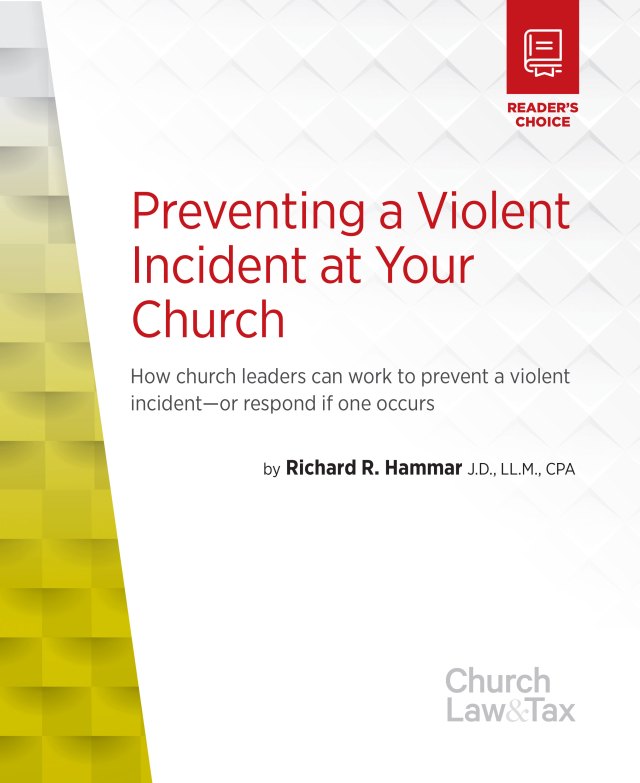• Key point 7-17. Churches do not have to tolerate persons who disrupt religious services. Church leaders can ask a court to issue an order barring the disruptive person from the church’s premises. If the person violates the order, he or she may be removed from church premises by the police, and may be found to be in contempt of court.
Removing Disruptive Individuals
* A California court ruled that a trial court’s order prohibiting an abusive 84-year-old church member from entering church property was reasonable and valid. An 84-year-old man (James) had been a member of a church for 50 years. In recent years, he continually disturbed services, told sexual jokes in the church lobby, called the pastor vulgar names, made improper comments to women about their bodies, and touched women inappropriately. In addition, he exhibited a temper when others disagreed with him, and hit a church elder. Many members left the church because of his actions. The church obtained a court order requiring James to stay 100 yards away from the church or its pastor, and denying him access to church property. James appealed this order, claiming that the church failed to follow its bylaws in seeking the court order against him. The appeals court disagreed. The court conceded that the church may not have complied with all of the provisions of its bylaws in taking action against James, but concluded that this was not a basis for appeal since James was “estopped” (prevented) from raising it because he and the other members of the church had acquiesced and participated in the church’s procedures for years without complying with the bylaws. The court also rejected James’ argument that the church had not properly authorized a restraining order against him, noting that the church bulletin had clearly informed members that a special business meeting would be conducted on a specified date to determine “whether or not to authorize a restraining order filed in superior court against [James].” The church convened a meeting on the specified date, and by secret ballot a majority of members voted to pursue the restraining order against James.
Finally, the court rejected James’ argument that the trial court was barred by the first amendment from issuing an order barring him from church premises. It observed, “The proceedings before us do not involve ecclesiastical decisions. There was no decision to strike James from church roles or to preclude him from attending services at other Lutheran church facilities. He was not excommunicated. The trial court was not intervening in church discipline. The court was not asked to inquire into the church’s religious law or policy. Rather, the court was asked to preclude James from contacting [the pastor] and from entering the church in order to protect the church’s employees and officers.” Christ Lutheran Church v. Stude, 2004 WL 2813584 (Cal. App. 2004).
© Copyright 2005 by Church Law & Tax Report. All rights reserved. This publication is designed to provide accurate and authoritative information in regard to the subject matter covered. It is provided with the understanding that the publisher is not engaged in rendering legal, accounting, or other professional service. If legal advice or other expert assistance is required, the services of a competent professional person should be sought. Church Law & Tax Report, PO Box 1098, Matthews, NC 28106. Reference Code: m21 c0605




